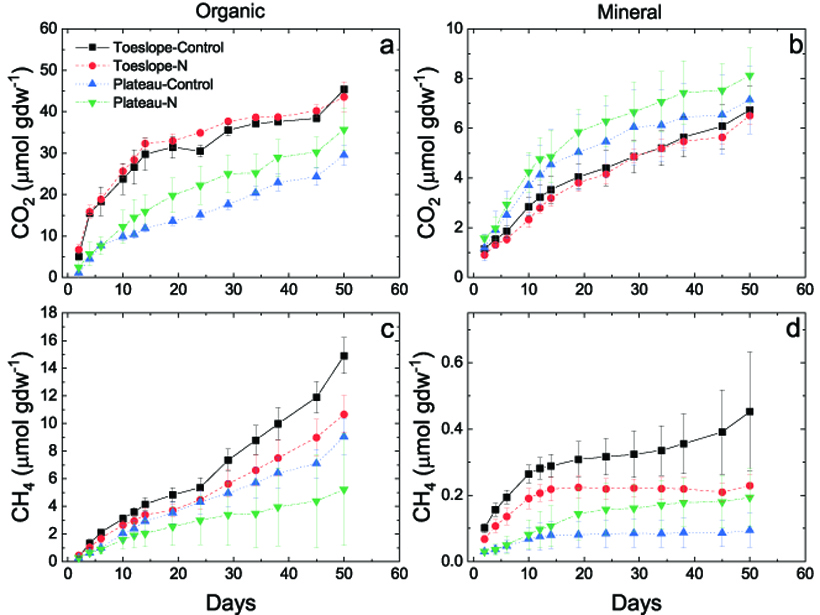Source: Journal of Geophysical Research: Biogeosciences
Permafrost environments are under threat from warming. As permafrost thaws, microbial activity leads to significant production of greenhouse gases. Understanding the scales at which the production of these gases varies in permafrost environments is an important piece of understanding the future of global carbon stocks, as a third of Earth’s carbon is in Arctic soils.
Philben et al. [2020] compare landscape positions using a fusion of field measurements and controlled laboratory experiments. Measuring carbon dioxide (CO2) and methane (CH4) production, at varied pH and nutrient availability, the authors find that toeslope positions are associated with significantly more production of these greenhouse gases. A combination of higher pH from mineral leaching and more abundant nutrients for microbial growth, were found to drive the increased production.
These findings demonstrate the link between landscape position and production of greenhouse gases, and as such, should be considered when trying to understand the impacts of future permafrost thawing.
Citation: Philben, M., Taş, N., Chen, H., Wullschleger, S.D., Kholodov, A., Graham, D.E. and Gu, B. [2020], Influences of Hillslope Biogeochemistry on Anaerobic Soil Organic Matter Decomposition in a Tundra Watershed. Journal of Geophysical Research: Biogeosciences, 125, e2019JG005512. https://doi.org/10.1029/2019JG005512
—William M. Hammond, Associate Editor, JGR: Biogeosciences
Text © 2020. The authors. CC BY-NC-ND 3.0
Except where otherwise noted, images are subject to copyright. Any reuse without express permission from the copyright owner is prohibited.

